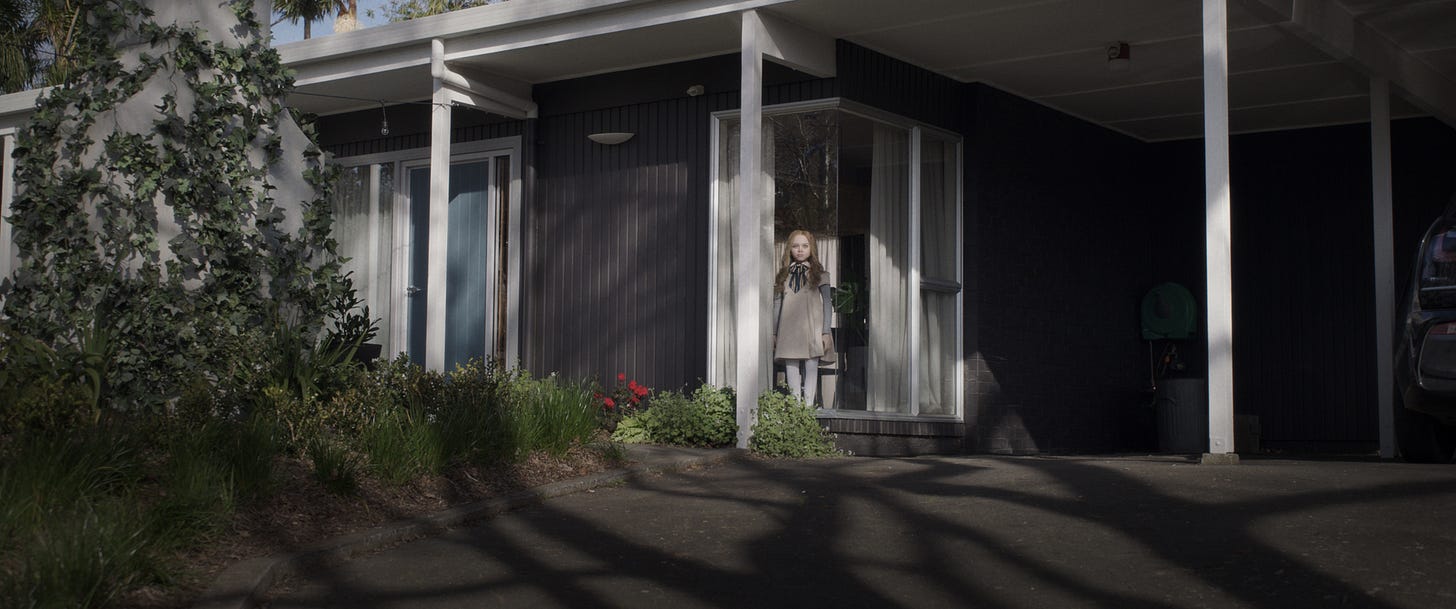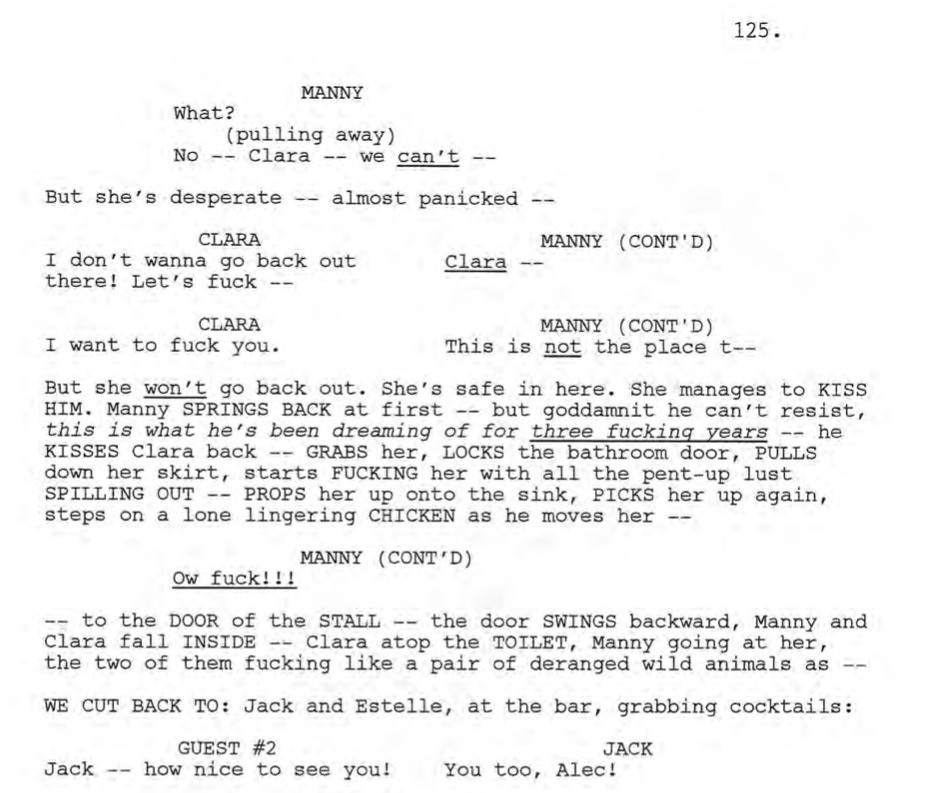Links to new reviews, plus follow-on thoughts about Avatar 2 and James Cameron’s historic distaste for the military mindset and American police and a page from Babylon. Beckett’s Beckettian interview from Swedish television. The great Strange Days is on HBO Max. Plus: All the Ted and little Hope.
This week’s reviews at Newcity include A Man Called Otto, aka “Bubba Grump”; Krieps’ show, Corsage; and Bill Nighy’s held breath in Living; as well as m3ga-hoot M3GAN.

Still awaiting the “For Your Consideration” PDF of Babylon? Here’s a page from the 2019 draft. (Review here.)
James Cameron’s portrayal of police and humankind’s military was a topic on Twitter, including by screenwriter Aaron Stewart-Ahn (Mandy, “The Witcher: Blood Origin,” “Guillermo del Toro's Cabinet of Curiosities”).


Days away from being immersed in its blue world, the thought of Cameron’s take on its human figures surfaces more and more:


Cameron told Esquire Middle East about one of the last sets of changes made on the release version of Avatar: The Way Of Water:
I had a bit of a crisis of faith as we were cutting the movie together. It was too violent. I wanted a balance between the beauty, the epiphany, the kind of spiritual aspect of the film, with the action, and I felt it had gotten a little too grim. I actually cut about ten minutes of the movie targeting gunplay action. I wanted to get rid of some of the ugliness, to find a balance between light and dark. You have to have conflict, of course. Violence and action are the same thing, depending on how you look at it. This is the dilemma of every action filmmaker, and I’m known as an action filmmaker… I look back on some films that I’ve made, and I don’t know if I would want to make that film now. I don’t know if I would want to fetishize the gun, like I did on a couple of Terminator movies thirty-plus years ago, in our current world. What’s happening with guns in our society turns my stomach. I’m happy to be living in New Zealand where they just banned all assault rifles two weeks after that horrific mosque shooting a couple of years ago,”
Here’s my interview with Cameron from the time of Titanic’s first release. “Titanic shows deft balance of intense intimacy and immense spectacle.”
It’s funny, I’m winding up the cycle of question-and-answers about the film and no one poses the question in those terms. They ask, what was the greatest challenge of making this movie, assuming it’s sinking a ship. The real question is how to create a sense of intimacy and have that, for the audience, on an eye-level with the big setpieces. I’ve tried to embrace those extremes in everything I’ve done. But you get better as you apply what you learn. You find what’s intrusive. It takes a lot of experience before you no longer feel compelled to show off as a director, instead of letting the dramatic goal of the scene dictate the style. Certainly, the hardest experience of my career was going from a cost-report meeting where we realize that this thing was costing tens of millions of dollars more than it was meant to. I’m thinking, ‘Man, this is a real high-wire act, we’re really setting ourselves up for a fall here.’ I’ve had enough experience with the media to know what would happen. Then I go up to the set and do a scene where four ladies with big hats and corsets are taking tea. Talking about the printer botching wedding invitations! “I’m doomed,” I thought, “I’m just doomed!” I felt like Captain Smith after he hit the iceberg; it was only a matter of time.


Ben Kenigsberg at the New York Times on the “high frame rate” headache:
Increasing the frame rate begins to make everything look hyper-clear. That extreme sharpness, far from being an unalloyed benefit, changes the whole texture of the image, giving it a look that we associate with video and stripping away whatever mystique and aesthetic allure comes from longer time gaps between frames… There is no discernible rationale for Cameron’s choices: The rate often shifts within a scene or when he cuts to another angle on the same object. And the technique isn’t simply used for action scenes and fast camera movements, the most obvious potential sources of blur or judder.
The long-hidden Strange Days is streaming on HBO Max. Again, Aaron Stewart-Ahn is on it:


Producer Ted Hope’s on Substack and Twitter, too. He’s got thoughts:






